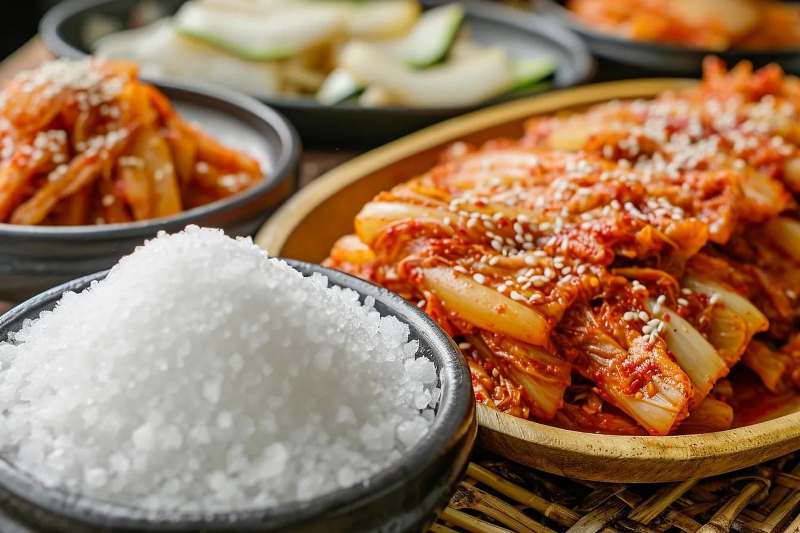
The Pros and Cons of Daily Kimchi Consumption
Kimchi, a staple in Korean cuisine, has gained popularity worldwide for its unique flavor and numerous health benefits. Made from fermented vegetables, primarily cabbage and radishes, kimchi is rich in probiotics and essential nutrients. While it is widely regarded as a nutritious addition to one’s diet, consuming kimchi every day may pose potential health risks that warrant careful consideration.
The Benefits of Kimchi
Before delving into the potential risks, it’s crucial to acknowledge the many health benefits associated with kimchi consumption. The fermentation process of kimchi involves the action of beneficial bacteria, resulting in a probiotic-rich food that promotes gut health. Probiotics play a key role in maintaining a balanced gut microbiome, which is linked to improved digestion, enhanced immune function, and even mood regulation.
Kimchi is also a nutrient powerhouse, containing vitamins A and C, as well as minerals like calcium and iron. Additionally, it boasts antioxidant properties, helping to combat oxidative stress and inflammation within the body. These factors contribute to kimchi’s reputation as a health-promoting food.

High Sodium Content
While sodium is an essential nutrient, excessive intake can lead to health problems, particularly for individuals with hypertension or cardiovascular issues. The salt used in the fermentation process of kimchi can contribute to increased sodium levels in the diet. Regular, high intake of sodium may elevate blood pressure, potentially increasing the risk of heart disease and stroke. Individuals with pre-existing heart conditions or those advised to limit their sodium intake should be cautious about consuming kimchi in excess.
Digestive Discomfort
Kimchi’s spiciness and the presence of certain compounds, such as goitrogens found in cruciferous vegetables, may lead to digestive discomfort for some individuals. Goitrogens can interfere with thyroid function, potentially causing issues for those with thyroid conditions or sensitivity.
Histamine Sensitivity
Fermented foods like kimchi contain histamine, and while most people tolerate histamine well, some individuals may be sensitive to it. Histamine intolerance can manifest as symptoms such as headaches, hives, and digestive issues. Those who are histamine-sensitive may need to moderate their kimchi consumption to avoid adverse reactions.
Moderation is Key
The key takeaway is not to demonize kimchi but to emphasize the importance of moderation. Incorporating kimchi into a diverse and balanced diet, rather than consuming it daily, allows individuals to enjoy its benefits without exposing themselves to potential risks associated with overconsumption.
Kimchi undoubtedly offers a myriad of health benefits, from supporting gut health to providing essential nutrients and antioxidants. However, like any food, moderation is crucial to avoid potential health risks associated with overconsumption. By incorporating kimchi into a varied diet and being mindful of individual health considerations, individuals can continue to enjoy this flavorful and nutritious dish without compromising their well-being.
Before you wrap up your exploration, don’t miss the chance to delve deeper. Watch the embedded video “The Role of Kimchi and H. Pylori in Stomach Cancer” by NutritionFacts.org for additional insights, expanding your understanding of the complexities surrounding kimchi and its potential impact on health.







